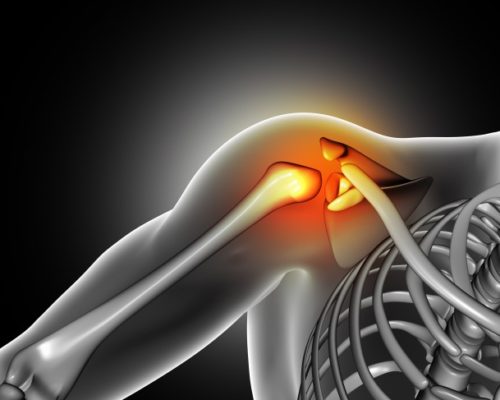Frozen shoulder, also known as adhesive capsulitis, is a condition characterized by stiffness and pain in the shoulder joint.
It is the most frequent and disabling disorder affecting the shoulder capsule and the connective tissue surrounding the glenohumeral joint.
The common symptoms are inflammation and stiffness accompanied by an important restriction of shoulder motion which ultimately leads to chronic pain.
Frozen shoulder often starts out of the blue but may be triggered by a mild injury to the shoulder. The condition usually goes through three phases, starting with pain, then stiffness and finally a stage of resolution as the pain eases and most of the movement returns.
The three typical phases are:
Freezing phase: When pain increases with movement and is often worse at night. There is a progressive loss of motion with increasing pain.
Frozen phase: When pain begins to diminish, however, the range of motion in this phase is much more limited, as much as 50 percent less than in the other arm.
Thawing phase: The condition may begin to resolve. Most patients experience a gradual restoration of motion at this stage.

